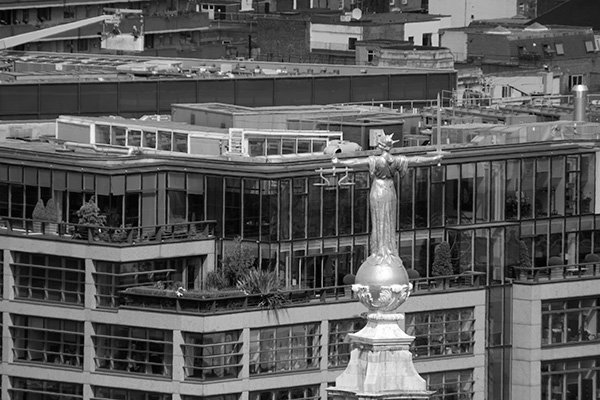Like it or not, many US imports have successfully infiltrated this side of the Atlantic. But for the banks in this country and those who seek to regulate them, it is the Americanisation of corporate criminal justice that could prove to be the most significant.
At the end of last year UK regulators, together with those in the US and Switzerland, fined six banks an eye-watering $4.3 billion after finding that traders had colluded in chat rooms to rig foreign exchange benchmarks. The Financial Times notes that the scandal “once again called into question the integrity of the global financial markets.” The regulators are now fighting back, and are using American weapons to do so.
The Attorney-General Jeremy Wright has confirmed that the government is considering creating a new offence of failure to prevent economic crime. This will be modelled on the UK Bribery Act’s “corporate offence”, which itself was originally based on the US Foreign and Corrupt Practices Act.
In addition, the Serious Fraud Office (SFO) is beginning to use a quintessentially American tool of its own: the Deferred Prosecution Agreement (DPA).
The DPA
DPAs have long featured in the arsenal of American prosecutors, allowing them to suspend criminal investigations into errant organisations and helping them avoid an admission of wrongdoing. In return, the organisations take on financial penalties which can include profit disgorgement, fines and payment of compensation to victims.
SFO Director David Green announced last month that three companies are under “active consideration” to be pushed down the DPA route in the UK.
For the banks: “A cost of doing business”
The potential fines are large enough to be treated as more than simply an irritant, even by the biggest banks in the UK. However the opportunity to cut short an intrusive investigation and avoid criminal liability may prove to be worth the price.
David Kirk, the FCA’s former chief criminal counsel, argues that DPAs are “’in many respects… a side issue, since banks are not convicted of any criminal offence, and will see the DPA penalty, however large, as a cost of doing business.”
Another limiting feature of the DPA is that they apply to organisations rather than individuals. Kirk argues that “the key issue, and a massive challenge to law enforcement, is whether board level accountability can be established, opening the door to prosecuting the top brass for setting a tone that, knowingly or not, rewards dishonesty.”
This may well be a challenge is too far for the DPA. Indeed, the attraction for a bank of mitigating the reputational fallout from an investigation could well give it less incentive to get its house in order.
For the regulators: a perception of corporate co-conspiracy?
And for the UK regulators themselves- will the introduction of DPAs give them an easier ride in the eyes of the public? Absolutely not, not if recent coverage of the forex scandal is anything to go by.
Regulators could well come to be seen as corporate co-conspirators, in cahoots with the banks and other big multinationals to help absolve them from the reputational cost of a guilty verdict in exchange for a high price.
When the US Commodity Futures Trading Commission and the Office of the Comptroller of the Currency handed out a total of $2.3 billion in fines to banks last year, no bank was forced to admit wrongdoing and the full details of the traders’ misconduct was not disclosed. The process was pilloried in the press as a consequence.
Far from satisfying the public’s desire to see corporate criminals face justice, the introduction of DPAs may indeed have the opposite effect. Ironically, the shortcomings of the DPA could lead to reputational consequences that are worse for the regulators than they are for the banks themselves.

